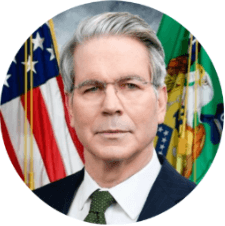Market Update
Bitcoin Rebounds As Crypto Mortgages Gain Momentum
 3 minutes
3 minutes
 3 minutes
3 minutes



The U.S. Federal Housing Finance Agency (FHFA) directed housing giants Fannie Mae and Freddie Mac to formally consider cryptocurrency as an asset in single-family mortgage loan risk assessments.
“Cryptocurrency is an emerging asset class that may offer an opportunity to build wealth outside of the stock and bond markets,” the order stated, acknowledging crypto’s growing role in household financial portfolios.
Until now, all cryptocurrencies, including Bitcoin, have not typically been considered in the mortgage risk assessment process unless it was first sold for fiat currency. Countless cryptocurrency holders have had to sell their holdings in order to be approved to take out a mortgage.

The U.S. Senate passed a landmark stablecoin bill last week, marking a critical point for federal crypto regulation. The bill will progress to the House of Representatives, which will now decide whether to advance its own stablecoin legislation or consider the Senate’s. The bill aims to regulate dollar-backed stablecoins, requiring issuers to hold liquid assets like U.S. Treasuries, provide monthly reserve disclosures, and allow law enforcement to freeze tokens.
U.S. President Donald Trump has urged the House to quickly pass the bill so he can officially sign it into law. “Get it to my desk ASAP,” Trump posted on Truth Social on June 19. “No delays, no add-ons.” He has previously indicated that he wants stablecoin legislation on his desk before Congress breaks for its August recess.

Stablecoin adoption among global fintech and payments companies (e.g. Visa, PayPal, Stripe) has surged in recent months, driven by their potential for faster, cheaper, and more transparent cross-border transactions. (Learn more about stablecoins.)
Fiserv was the latest large fintech company to declare its stablecoin plans this week, announcing that it is developing a stablecoin pegged to the U.S. dollar and an accompanying platform built on Solana. The company currently supports approximately 10,000 financial institutions and 6 million merchants, processing 90 billion transactions annually.
Bitcoin dominance—which measures BTC’s market cap as a percentage of the combined market cap of all cryptocurrencies—hit 65.5% this week, its highest level since January 2021. One factor likely behind this is the continued accumulation of Bitcoin by companies establishing their own corporate treasury strategies, following the likes of Strategy, formerly MicroStrategy.
Trump Media & Technology Group and GameStop are among the dozens of new Bitcoin treasury initiatives announced in the past few months alone. They are expected to continue accumulating Bitcoin for the foreseeable future.

